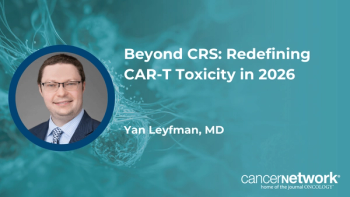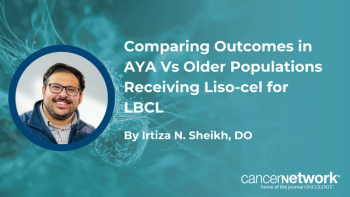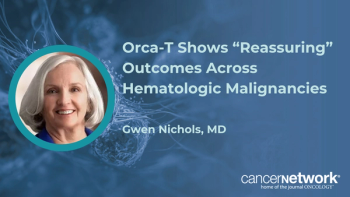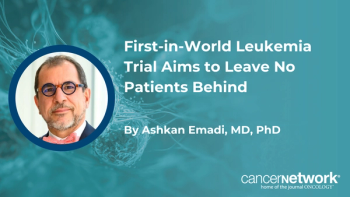
Blinatumomab Active in Ph+ B-Precursor Acute Lymphoblastic Leukemia
Single-agent use of blinatumomab resulted in anti-leukemic activity in patients with tyrosine kinase inhibitor–relapsed or refractory Philadelphia chromosome positive B-precursor acute lymphoblastic leukemia.
Single-agent use of the T-cell engager antibody blinatumomab resulted in anti-leukemic activity in patients with tyrosine kinase inhibitor (TKI)-relapsed or refractory Philadelphia chromosome positive B-precursor acute lymphoblastic leukemia (Ph+ ALL), according to the results of a phase II study
“These data demonstrate efficacy of single-agent blinatumomab in relapsed or refractory Ph+ ALL,” wrote Giovanni Martinelli, MD, PhD, of the Institute of Hematology and Medical Oncology, S. Orsola University Hospital, Italy, and colleagues. The results suggest the agent has “a possible future role in Ph-like ALL and combination therapies with TKIs for this disease setting.”
According to the study, patients with Ph+ disease have poor prognosis. The addition of TKIs to therapy have improved outcomes; however, disease relapse is still a significant and challenging concern. A phase II study of blinatumomab showed that the drug had anti-leukemic activity in adults with Philadelphia chromosome–negative (Ph–) disease, and the agent received approval in this setting. With this analysis, Martinelli and colleagues wanted to evaluate its efficacy in patients with Ph+ disease.
The open-label study included 45 patients who received blinatumomab in 28-day cycles by continuous intravenous infusion. All patients had relapsed or were refractory to at least one second generation or later TKI or were intolerant to second-generation or later TKIs and intolerant or refractory to imatinib. The primary endpoint was complete remission or complete remission with partial hematologic recovery (CR/CRh) during the first two cycles of treatment.
Eighty-four percent of patients had received two or more prior TKIs. The median number of blinatumomab cycles was two. More than one-third (36%) of patients achieved the primary endpoint of the study, including 4 of 10 with T315I mutations. Fourteen of 16 patients achieving the primary endpoint achieved a complete response. Among those patients who responded, 47% had three or more prior TKIs and 35% had prior ponatinib.
“Notably, these data show that the proportion of patients who achieved CR/CRh was in line with that reported for less heavily pretreated populations or those in the Ph– setting (36% vs 43% in Ph– ALL), with similar or better response duration than that observed with TKI therapies,” the researchers wrote.
The majority of patients (88%) who responded achieved a complete minimal residual disease response. Forty-four percent of patients who responded went on to allogeneic hematopoietic stem-cell transplantation, including 55% of transplant-naive responders.
With a median follow-up of 9 months, the median relapse-free survival was 6.7 months. No difference in relapse-free survival was seen for patients younger than 55 or older. With a median follow-up of 8.8 months, the median overall survival was 7.1 months.
“Adverse events were consistent with those previously observed for blinatumomab in the setting of relapsed or refractory Ph– ALL,” the researchers wrote.
There were no grade 4 or 5 adverse events. Three patients had cytokine release syndrome and three had grade 3 neurologic events.
Newsletter
Stay up to date on recent advances in the multidisciplinary approach to cancer.



















































